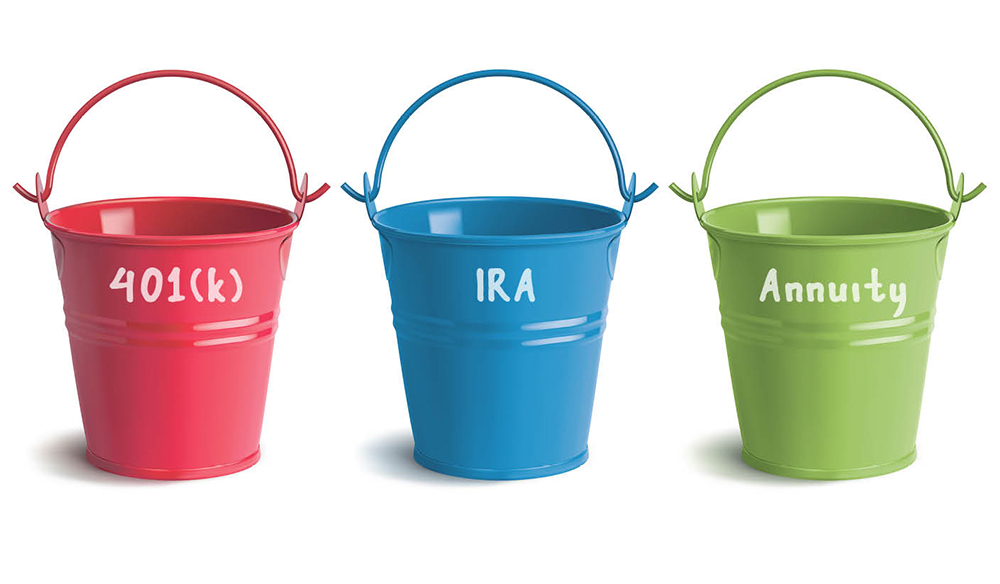SUBSCRIBE
Enter your Name and Email address to get
the newsletter delivered to your inbox.
Please include name of person that directed you to my online newsletter so I can thank them personally.


Dianne Williams Wildt, MBA
Certified Retirement Counselor®
Since 1983 in the financial services and investment industry
Retirement Pathways, Inc.
4500 Bowling Blvd., Suite 100
Louisville, KY 40207
Phone: 502-797-1258
Email: dianne@retirementpathways.com
Website: www.retirementpathways.com

Super retirement savers often contribute the maximum allowed to tax-qualified retirement accounts like 401(k) plans and IRAs. If you’re a super saver, what do you do if you want to contribute more to a tax- deferred account?
Depending on your situation, one vehicle that may make sense is an annuity.* Purchasing an annuity can help you put additional tax-advantaged dollars away for retirement and avoid the annual taxes that investing in taxable investments may bring.
People who contribute the maximum allowed to their qualified retirement accounts may have to take high, mandated required minimum distributions (RMDs). This can be a taxing problem because high RMDs may bump taxpayers into a higher tax bracket. This is exacerbated if they also receive income elsewhere. And the higher the retirement income, the more Medicare Part B will cost. For example, in 2023 monthly premiums ranged from $164.90 to $560.50, depending on income. Anyone who turns age 73 in 2023 must start RMDs no later than April 2024.
If you are risk-averse, an annuity can provide relative safety. Fixed annuities may not be the best choice if you think you may need to begin annuity payments during the first six to 10 years, when significant surrender charges occur. If you want income now, consider an immediate annuity.
Rules for qualified and nonqualified annuities may differ. Your financial and tax professionals can tell you more about how an annuity might benefit you and affect your taxes in retirement.
*Annuity products are not FDIC-insured, and their guarantees are backed solely by the claims-paying ability of their issuing life insurance company. Distributions from traditional annuities are taxed as ordinary income and, if taken prior to reaching age 59½, may be subject to an additional 10% IRS tax penalty.
Enter your Name and Email address to get
the newsletter delivered to your inbox.
Please include name of person that directed you to my online newsletter so I can thank them personally.
Enter your Name, Email Address and a short message. We'll respond to you as soon as possible.
Investment advisory services offered through American Capital Management, Inc., a State Registered Investment Advisor. Retirement Pathways, Inc. is independent of American Capital Management, Inc.
Retirement Pathways, Inc. and LTM Marketing Specialists LLC are unrelated companies. This publication was prepared for the publication’s provider by LTM Client Marketing, an unrelated third party. Articles are not written or produced by the named representative.
The information and opinions contained in this web site are obtained from sources believed to be reliable, but their accuracy cannot be guaranteed. The publishers assume no responsibility for errors and omissions or for any damages resulting from the use of the published information. This web site is published with the understanding that it does not render legal, accounting, financial, or other professional advice. Whole or partial reproduction of this web site is forbidden without the written permission of the publisher.